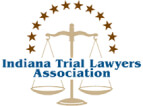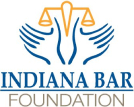
Pitocin is a synthetic hormone doctors may use to induce labor in some cases. While the medicine often works without issue, it does carry some risks of complications and side effects of Pitocin after birth that may result in injuries or defects.
How an Indianapolis Birth Injury Attorney Can Help
If you or your child experienced Pitocin birth injuries or defects due to a medical provider’s negligence, you may be entitled to recover compensation for the resulting financial and personal harm. The Law Office of Kelley J. Johnson focuses exclusively on medical negligence cases and can help you by:
- Thoroughly investigating your case
- Working with expert witnesses to determine whether a Pitocin error occurred
- Preparing your medical negligence claim
- Negotiating with insurers
- Taking your case to court if necessary
As one satisfied client wrote of their experience:
“I highly recommend Kelly and her entire team. Kelly is very professional and easy to work with. She will fight for her client’s best interest to win the case. Her medical knowledge is astounding. She goes above and beyond, looking at every detail, to do what is best for her clients.” – Jason S.
What Is Pitocin and Why It’s Used During Labor
Pitocin is a synthetic version of oxytocin, the natural hormone that stimulates uterine contractions during labor. Doctors may administer Pitocin through an IV to induce labor when it does not begin on its own or to strengthen contractions that have slowed. Healthcare providers may also use it to help deliver the placenta or control bleeding after childbirth.
While Pitocin can be helpful in managing labor progression, it requires careful monitoring. If given in excessive doses or too quickly, it can cause contractions that are too strong or frequent, increasing the risk of harm to both mother and baby.
What Are the Risks of Pitocin After Birth?
Excessive Pitocin can cause uterine hyperstimulation, where contractions become too intense or frequent and limit the baby’s oxygen. In severe cases, this stress may lead to uterine rupture, a dangerous tearing of the uterine wall. These complications can result in fetal distress, often indicated by abnormal heart rate patterns.
Birth Injuries Linked to Pitocin Misuse
When Pitocin causes overly strong or prolonged contractions, the baby may not receive enough oxygen, which can lead to a serious brain injury called hypoxic-ischemic encephalopathy (HIE). HIE can result in long-term conditions such as cerebral palsy, developmental delays, or seizures. Difficult deliveries caused by excessive contractions can also lead to shoulder dystocia or other birth trauma, potentially causing nerve damage or fractures. These injuries often require ongoing medical care and can have lifelong consequences for affected children.
Signs of Medical Negligence in Pitocin Cases
When investigating Pitocin birth injury cases, your attorney will look for signs of medical negligence indicating a provider failed in their duty to prevent harm. Some signs of medical negligence in Pitocin cases include:
- Ignoring fetal distress warning signs
- Administering Pitocin without medical necessity
- Inadequate monitoring or delayed emergency response
Legal Rights of Families Affected by Pitocin Injuries
Mothers, babies, and families harmed by errors that cause Pitocin birth defects and injuries have the right to pursue compensation and accountability from negligent medical providers. If your family experienced a Pitocin-related medical error, contact the Law Office of Kelley J. Johnson today to request a free consultation.













